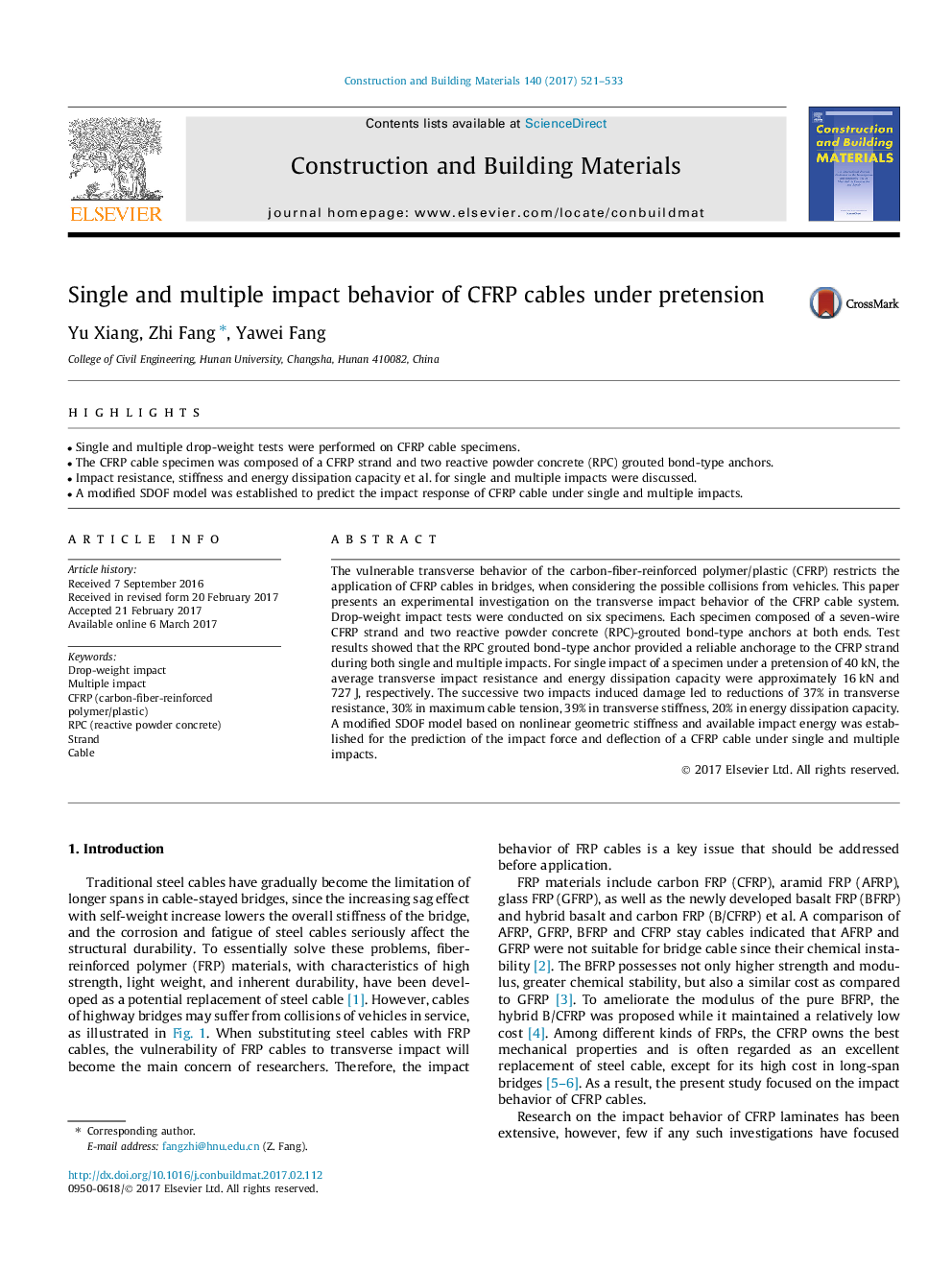| Article ID | Journal | Published Year | Pages | File Type |
|---|---|---|---|---|
| 4918489 | Construction and Building Materials | 2017 | 13 Pages |
Abstract
The vulnerable transverse behavior of the carbon-fiber-reinforced polymer/plastic (CFRP) restricts the application of CFRP cables in bridges, when considering the possible collisions from vehicles. This paper presents an experimental investigation on the transverse impact behavior of the CFRP cable system. Drop-weight impact tests were conducted on six specimens. Each specimen composed of a seven-wire CFRP strand and two reactive powder concrete (RPC)-grouted bond-type anchors at both ends. Test results showed that the RPC grouted bond-type anchor provided a reliable anchorage to the CFRP strand during both single and multiple impacts. For single impact of a specimen under a pretension of 40Â kN, the average transverse impact resistance and energy dissipation capacity were approximately 16Â kN and 727Â J, respectively. The successive two impacts induced damage led to reductions of 37% in transverse resistance, 30% in maximum cable tension, 39% in transverse stiffness, 20% in energy dissipation capacity. A modified SDOF model based on nonlinear geometric stiffness and available impact energy was established for the prediction of the impact force and deflection of a CFRP cable under single and multiple impacts.
Related Topics
Physical Sciences and Engineering
Engineering
Civil and Structural Engineering
Authors
Yu Xiang, Zhi Fang, Yawei Fang,
